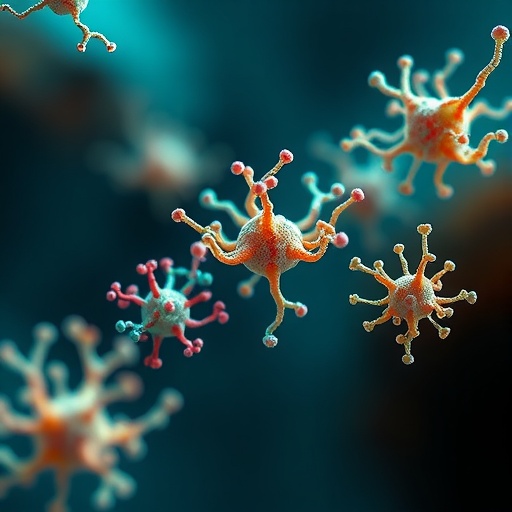
view more
Credit: OIST
The Okinawa Institute of Science and Technology (OIST) Associate Professor Paola Laurino has been selected as one of the top 10 global awardees in the Life Sciences category of the Falling Walls Science Breakthrough, presented by Germany’s Falling Walls Foundation.
The Falling Walls Foundation celebrates scientific excellence and its societal impact by recognizing breakthrough research across nine categories, including life sciences, physics, engineering, and technology. Each year, the foundation selects projects that offer innovative solutions to pressing global challenges.
Prof Laurino joined OIST in 2017 and leads the Protein Engineering and Evolution Unit at OIST. This year, her unit’s research project, “Ocean Microbes’ Survival Secrets,” is one among the ten winners of this year’s Falling Walls Science breakthroughs in life sciences. The study, published in Nature (https://doi.org/10.1038/s41586-024-07924-w), reveals the molecular mechanisms that enable SAR11, the most abundant marine bacteria on earth, to survive and thrive in nutrient-poor environments. The research demonstrates how SAR11 utilizes ultra-high-affinity transporters to efficiently capture carbon sources, shedding light on global nutrient uptake patterns driven by microbial life.
“Our experiments revealed distinct properties of transport proteins that help SAR11 bacteria survive in nutrient-poor environments—insights that would not have been apparent from genomic data alone,” said Prof. Laurino. “We already knew that SAR11 plays a central role in global nutrient cycles, such as carbon and sulfur exchange, but by comprehensively mapping its transport proteins, we now have a much clearer understanding of how this microbe fits into and influences these essential processes.”
The findings offer new insights into how microbes shape global biogeochemical cycles and open up possibilities for environmental modeling, restoration strategies, and the design of nutrient-capture systems. The work also paves the way for new frontiers in systems biology and synthetic biology, with long-term implications for climate science, ecosystem management, and molecular innovation.
This award marks the second time that an OIST researcher has received this honor, following Prof. Keshav Dani’s recognition in the Physics category in 2023.
On September 16, the Falling Walls Foundation will announce the Science Breakthrough Laureate of the Year 2025 from among the top 10 finalists in each category. The laureate will present their work at the Falling Walls Science Summit in Berlin on November 9.
Tomomi Okubo
Okinawa Institute of Science and Technology (OIST) Graduate University
tomomi.okubo@oist.jp
Office: 81-989-823-447
Keywords
bu içeriği en az 2000 kelime olacak şekilde ve alt başlıklar ve madde içermiyecek şekilde ünlü bir science magazine için İngilizce olarak yeniden yaz. Teknik açıklamalar içersin ve viral olacak şekilde İngilizce yaz. Haber dışında başka bir şey içermesin. Haber içerisinde en az 12 paragraf ve her bir paragrafta da en az 50 kelime olsun. Cevapta sadece haber olsun. Ayrıca haberi yazdıktan sonra içerikten yararlanarak aşağıdaki başlıkların bilgisi var ise haberin altında doldur. Eğer yoksa bilgisi ilgili kısmı yazma.:
Subject of Research:
Article Title:
News Publication Date:
Web References:
References:
Image Credits:
Keywords



